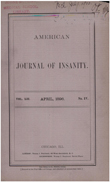Neural Mechanisms in dissociative amnesia for childhood abuse: relevance to the current controversy surrounding the "false memory syndrome"
Abstract
OBJECTIVE: There is considerable controversy about delayed recall of childhood abuse. Some authors have claimed that there is a "false memory syndrome," in which therapists suggest to patients events that never actually occurred. These authors point to findings that suggest that memory traces are susceptible to modification. The purpose of this paper is to review the literature on the potential vulnerability of memory traces to modification and on the effects of stress on the neurobiology of memory. METHOD: The authors review findings on mechanisms involved in normal memory function, effects of stress on memory in normal persons, children's memory of stressful events, and alterations of memory function in psychiatric disorders. The effects of stress on specific brain regions and brain chemistry are also examined. RESULTS: Neuropeptides and neurotransmitters released during stress can modulate memory function, acting at the level of the hippocampus, amygdala, and other brain regions involved in memory. Such release may interfere with the laying down of memory traces for incidents of childhood abuse. Also, childhood abuse may result in long-term alterations in the function of these neuromodulators. CONCLUSIONS: John Nemiah pointed out several years ago that alterations in memory in the form of dissociative amnesia are an important part of exposure to traumatic stressors, such as childhood abuse. The studies reviewed here show that extreme stress has long-term effects on memory. These findings may provide a model for understanding the mechanisms involved in dissociative amnesia, as well as a rationale for phenomena such as delayed recall of childhood abuse.
Access content
To read the fulltext, please use one of the options below to sign in or purchase access.- Personal login
- Institutional Login
- Sign in via OpenAthens
- Register for access
-
Please login/register if you wish to pair your device and check access availability.
Not a subscriber?
PsychiatryOnline subscription options offer access to the DSM-5 library, books, journals, CME, and patient resources. This all-in-one virtual library provides psychiatrists and mental health professionals with key resources for diagnosis, treatment, research, and professional development.
Need more help? PsychiatryOnline Customer Service may be reached by emailing [email protected] or by calling 800-368-5777 (in the U.S.) or 703-907-7322 (outside the U.S.).



